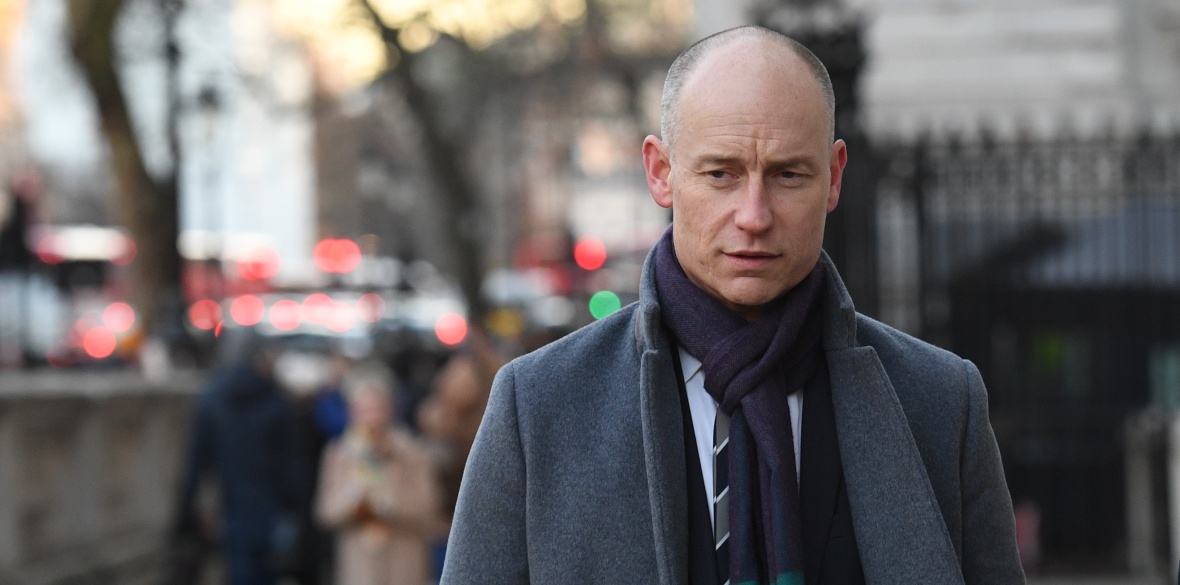This is the last article you can read this month
You can read more article this month
You can read more articles this month
Sorry your limit is up for this month
Reset on:
Please help support the Morning Star by subscribing here
I DO NOT like charades. Neither the elongated attempt at family entertainment that ruins everybody’s Christmas gatherings, nor the spectacle of Labour politicians pretending to talk about class.
The experience would be less painful if the likes of Stephen Kinnock weren’t so crap at picking cultural metaphors.
But alas we must listen to his razor-sharp analysis that “messages about fast-paced economic change and globalisation may go down well in coffee bars in London, but don’t speak to workers whose factories are closing down.”
Perhaps in 1964, patronage of a “coffee bar” symbolised membership of a particular social stratum. In 2019, it is largely symbolic of wanting a coffee.
Absolutely we should be having discussions about globalisation, shuttered factories and London.
Yet if we were to address the actually significant issue — that globalisation has delivered bumper profits to the City, and a great deal of pain to places like south Wales — Stephen Kinnock would have to face up to his own position on the question: that he greatly supports the unfettered movement of capital, goods and services, as illustrated by the kind of deal he has sought to bring about between Britain and the EU. So instead of dealing with matters of substance, he instead offers us this nonsense about caffeinated beverages.
For some reason, the right wing of the Welsh Labour Party has form when it comes to drawing stupid connections between coffee and social stratification.
We all remember when Owen Smith — son of an academic historian — insisted upon calling a cappuccino a frothy coffee in order to get across his ordinariness.
Sadly, this is all part of a longstanding affliction. Well into the 21st century the Labour Party continued to peddle representations of social inequality that appeared to have been plagiarised from a 1950s edition of Punch magazine.
I remember facepalming particularly hard — during the very facepalmy premiership of Gordon Brown — when a by-election came up in Crewe.
Labour wished to get across that the opposing candidate was very wealthy, and made this point to the electorate by having their volunteers follow him around in top hats and tails.
As if the person sticking up your rent, or profiting from your unpaid overtime typically looks anything like this.
As a trade union organiser on the railways put it to me on Friday, “In the past you’d be negotiating with ex-officers and you knew where you stood. Now you’ve got these spiky-haired types who read the Guardian on the other side of the table.”
Unfortunately, out-of-date caricatures form a large part of the post-mortem going on inside the Labour Party, particularly among those who are bent on reanimating the never-quite-alive corpse of Blue Labour.
On the other side are people who seem to regard the very idea of social geography with suspicion, and who see the mere mention of Britain’s deindustrialised towns as a potentially racist dog-whistle.
A lot of them like to make the superficially intelligent point that actually there’s a lot of poverty in Hackney and really there’s nothing special about the north of England.
This has mileage, but only if we collapse all forms of economic dislocation into a single quantitative measure called “poverty levels.”
Clearly there are regionally specific forms of economic distress that are shaping life in the smaller towns and former industrial cities. Clearly London is deeply atypical in that its economy grew continuously throughout the period of the crash.
And, yes, somebody living in a growing urban economy but facing massive labour market discrimination might have a similar income to somebody living in a town where there are simply no jobs — and both deserve all of our solidarity.
Yet it would hardly be shocking if people facing different kinds of problems looks towards different kinds of solutions or, you know, respond differently to the same party political campaign.
Neither tired cultural cliches, nor writing millions of people off as racists, will help us to make sense of Labour’s defeat in the Midlands and the north.
It is worth considering that the key economic problem facing smaller or deindustrialised towns is the lack of decent jobs, and that the historic focus of social democratic politics in these places was on work and wages.
By contrast, the bits of the Labour manifesto that were heard most loudly were almost all about government provision.
To offer one example, Labour’s plans for nationalised internet service provision was framed not as an infrastructure project, aimed at levelling out Britain’s productive base, but as “free broadband.”
And then there is the obvious point: if you are going to be offering things that we’ve been taught to believe are too good to be true, then you really need to be trusted and you need to look like you take elections seriously.
A party that refuses to respect the result of the 2016 referendum won’t necessarily be trusted to deliver on difficult sounding promises just because it has put them in its manifesto.
Sadly, the election is now done and cannot be undone. In the new year there will be a great many struggles that all of us — black or white, Bristolian or Geordie, coffee-lover or Diet Coke-guzzling — will need to get involved with, starting with the right to strike.
But before that we have some festivities to attend.
I wish all of you a banging New Year’s Eve and a charade-free Christmas Day!











